EDUCATION CENTRAL
to Know What Happened in America's World of Business, History, and Religion)
Message from the editor...
Someone recently asked me why this newspaper has a variety of articles across the religious, business, and history spectrums How are they related to the purpose of Education Central?, she asked
I think it's important that we all become more familiar with this entire world the Lord has loaned to us. Everything is interconnected. As a Christian, we should care about the economy and history because it impacts not only us, but our brothers and sisters as well.
The Fed Takes the Reins
Just what is the Federal Reserve? Didn’t the United States already have a history of a central bank? What brought it about in 1913? Why should this bank matter to Americans?
All good questions Going forward in our discussions of the financial debacles (see page 2) that plagued the United States (and ultimately the world) in the twentieth century, we will see that the Federal Reserve had a role in many of these calamities.
History
The name Alexander Hamilton is synonymous with nationalized banking. Before the creation of the Federal Reserve, one hundred twenty two years earlier in 1791, Hamilton authored a report Opinion on the Constitutionality of the Bank of the United States that exposed his belief that the new country, America, should have a central bank He believed that “implied powers” in the U.S. Constitution allowed for such a bank.
“It is a fact well understood that public banks have found admission and patronage among the principal and most enlightened commercial nations."
Alexander Hamilton
In 1791, the First Bank of the United States (BUS) was established When its charter of twenty years was close to running out in 1811, Congress said “no” to renewing the charter Thomas DiLorenzo, in his book Hamilton's Curse, wrote of the corruption associated with the BUS Six years later, in January 1817, the Second Bank of the United States (SBUS) was created With it came even greater expansion of bank credit and inflation along with corruption Under President Andrew Jackson's leadership, the charter was not renewed for the second national bank. This did not stop those seeking greater federal involvement and control on the financial side. The pursuit of national banking would continue
Which leads me to this edition's book review JFK and the Reagan Revolution The authors give us a glimpse of how a struggling economy impacts all races, all people.
It is hoped that as you read these articles, you will have a greater insight into the broad spectrum of areas in which we all can make an impact!

Enjoy the reads! Stay safe!
A Country's Economy and Its People
Economics is quite often seen as a topic in left field separate from other issues It is, however, a vital part of each of our lives (especially when jobs are scarce and inflation hits everyone's wallet). Understanding the correlation of a country's economy and the welfare of its people should be a prerequisite for anyone wanting to get into politics The apostle Paul tells us in Philippians 2:4 "Let each of you look not only to his own interests, but also to the interests of others." John D. Barry, the author of the book Jesus' Economy, emphasizes the need for a healthy church that can change a community "many physical poverty issues are solvable." In the book, JFK and the Reagan Revolution (see book review on page 4), President Kennedy sought "economic growth [that] would enable civil rights aspirations on all fronts to be easily realized " Barry points out that "if we combine church and job creation we could see entire societies renewed "
So it is painful to continue to see the slowing of the U S economy and the havoc greed and selfishness play in everyone's lives Here is what we know:
The Gross Domestic Product (GDP) has been revised
- For the third quarter of 2022, the Real GDP is forecasted to be 1.6 percent. This is up somewhat from an earlier forecast of 1 4 percent
The Personal Consumption Expenditure (PCE) was up 1.5 percent primarily due to food services and accommodations.
The GDP represents the total value of goods manufactured and services provided over a given time period
Source: DICamillo, N "The Fed lowered its US economic growth forecast in the face of war and inflation " Quartz
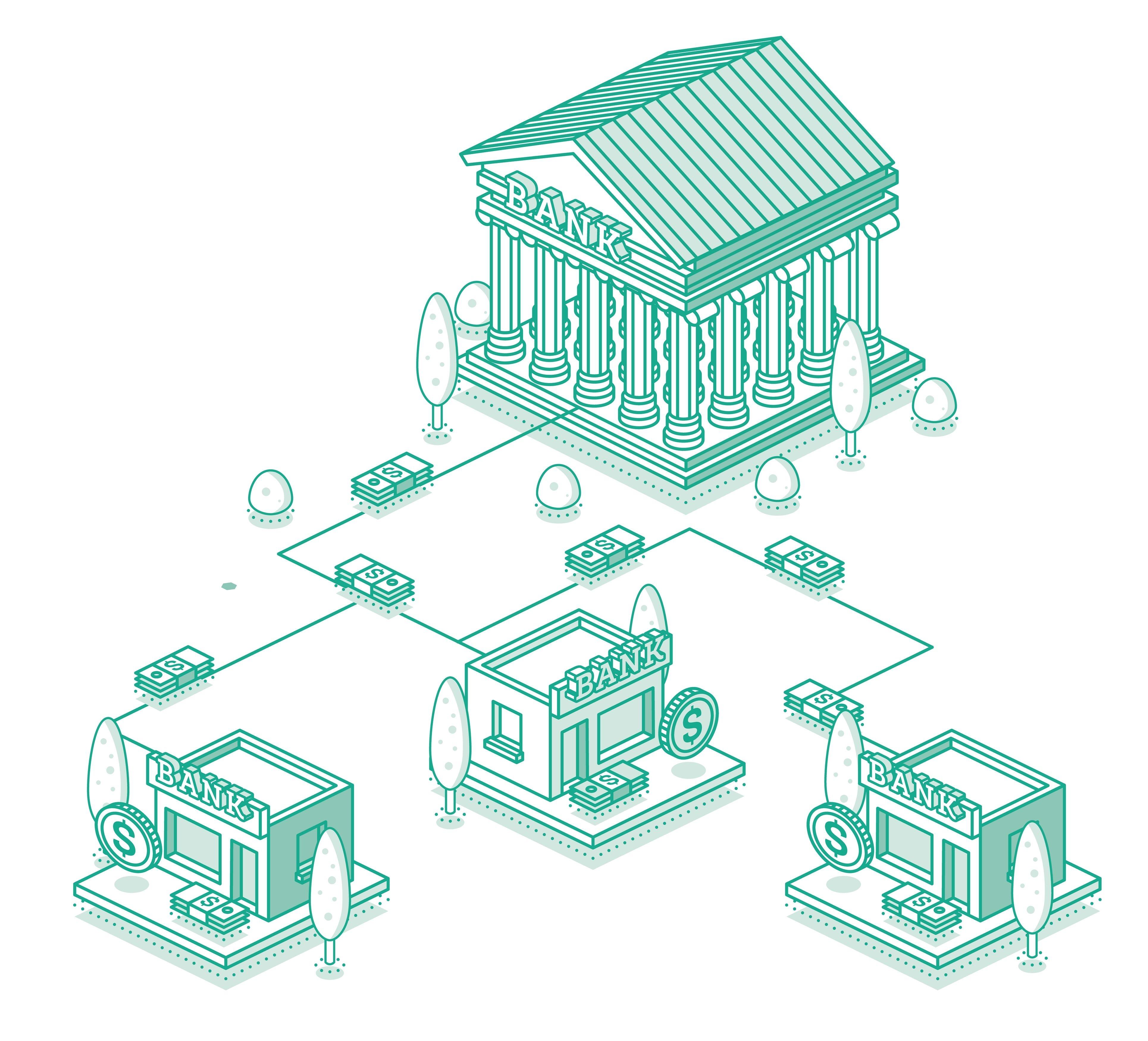
(continued on page 4) INSIDE THIS ISSUE: P1 The Fed Takes the Reins | P2 Leading Up to the Crash of 1929 Part 1 | P3 The Book of Judges Part 3 | P3 The Minor Prophets Series Obadiah | P3 Pathway to Effective Leadership Part 2 | P4 Book Review: JFK and the Reagan Revolution | P6 America's President Page: John F Kennedy
T h i r d Q t r . 2 0 2 2
(Getting
www.theouttop.com P1
"
...but after the fighting stopped in November 1918, the Fed was often wrongheaded in its approach "
Scott Nations, author of A History of the united States in Five Crashes
FY 1919 to 1920 - federal spending slashed 65 percent; budget went from $18 5 billion to $3.3 billion in FY 1922.

"As we shall see, the U S experience during the 1920 1921 depression...is almost a laboratory experiment showcasing the flaws of both the Keynesian and monetarist prescriptions " Robert P Murphy, author of article "The Depression You've Never Heard Of: 1920 1921."



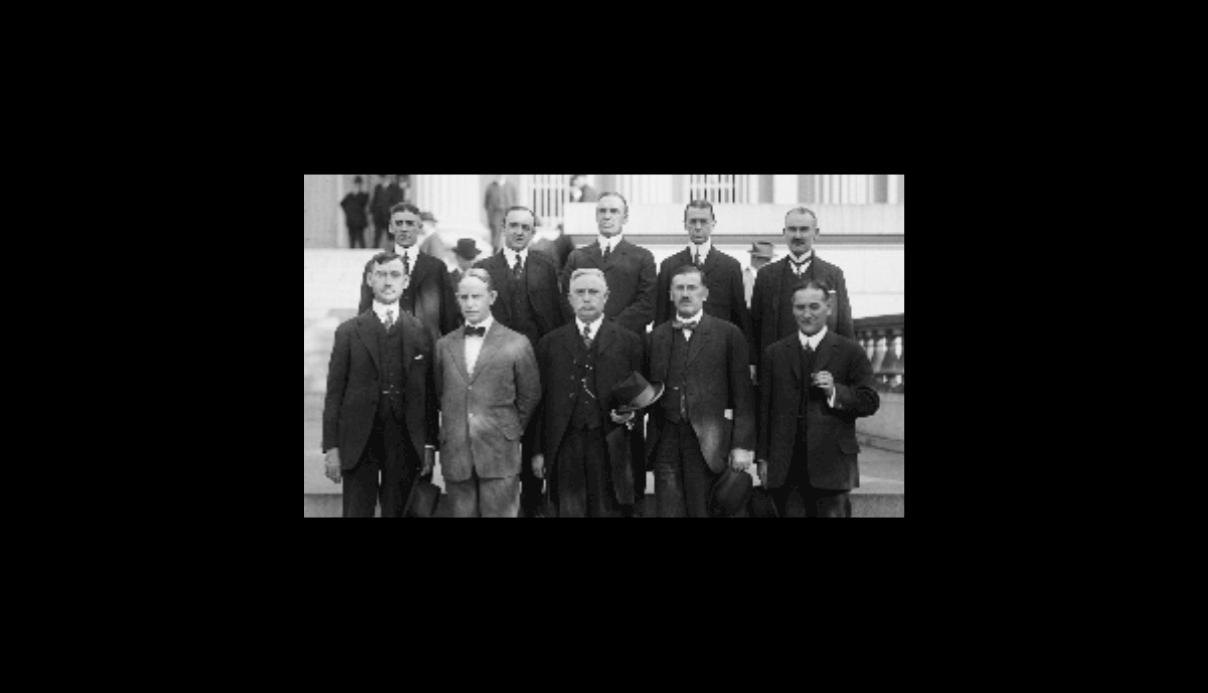
come to an end! nstead of allowing omy to adjust on wn, the Fed aise interest rates!"

The end of the war (WWI) would bring an end to government price supports for farmers in 1920 Then
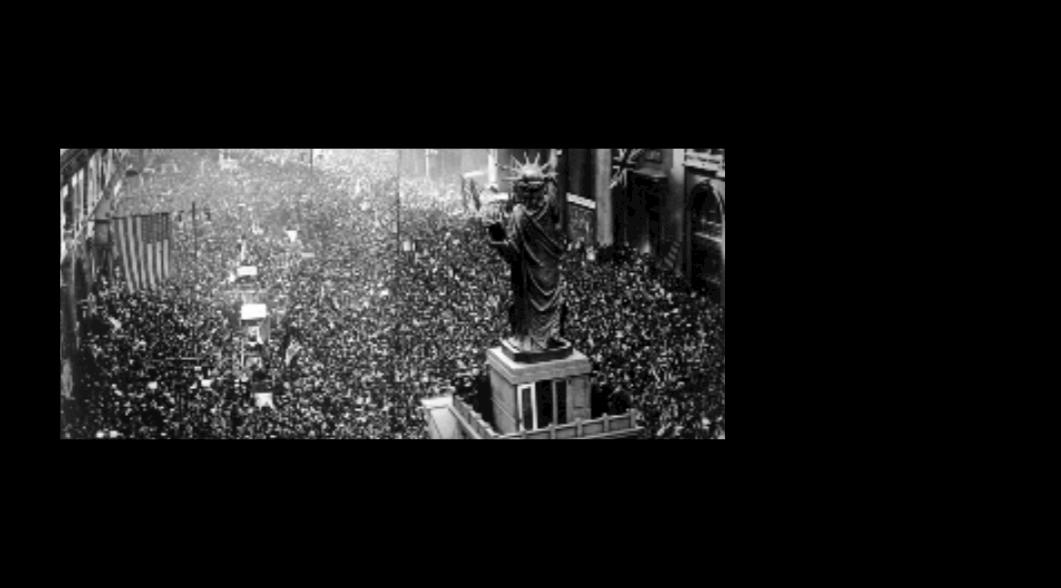
Federal Reserv g its discount ncial institution bove) causing


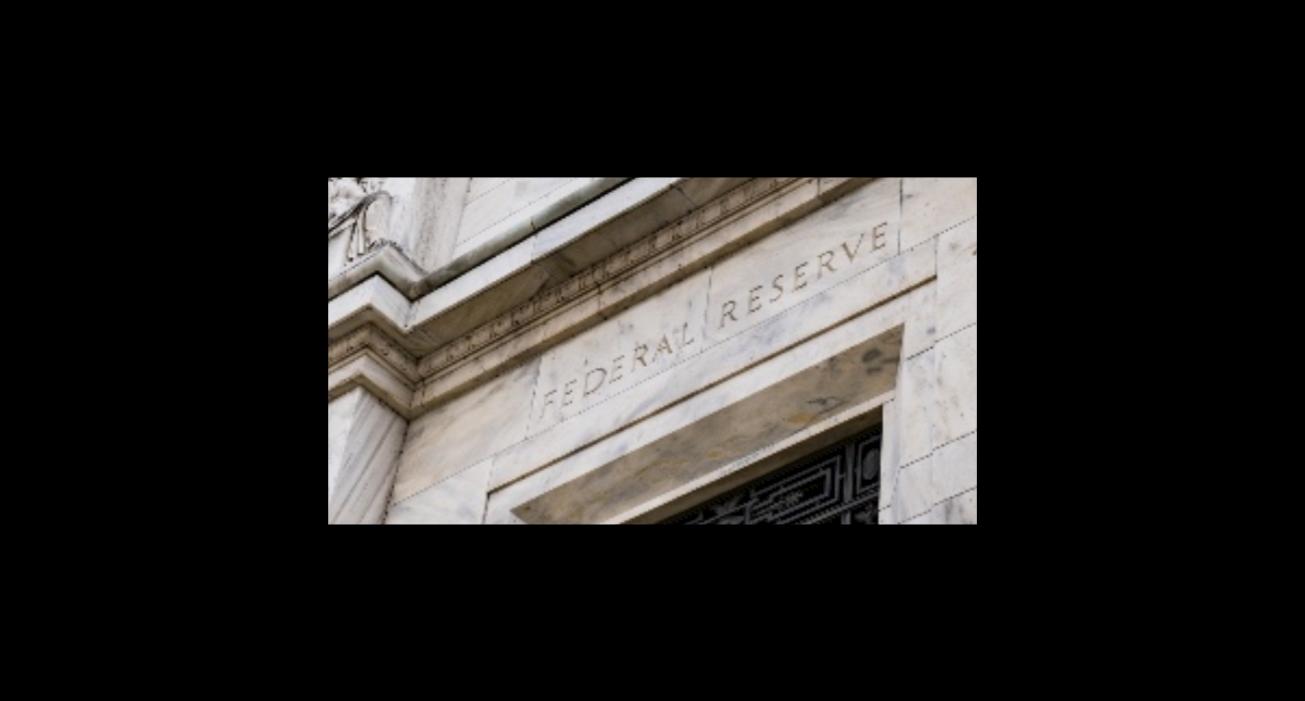
economy to

-over-year deflation rate of the at Depression which never reached ercent.
Econom output, in 1921, dropped by 16.7 percent.

Cotton prices fell by nearly two-thirds.

Corn price per bushel fell; a bushel cost 65 cents
Farm income fell from $17.7 billion in 1919 to $10.5 billion in 1921.
From
Unemployment, overall, jumped dramatically between 1920 and 1921.
*Some economic reports state that unemployment peaked even higher in September 1921, from 11 7% to 23 1%
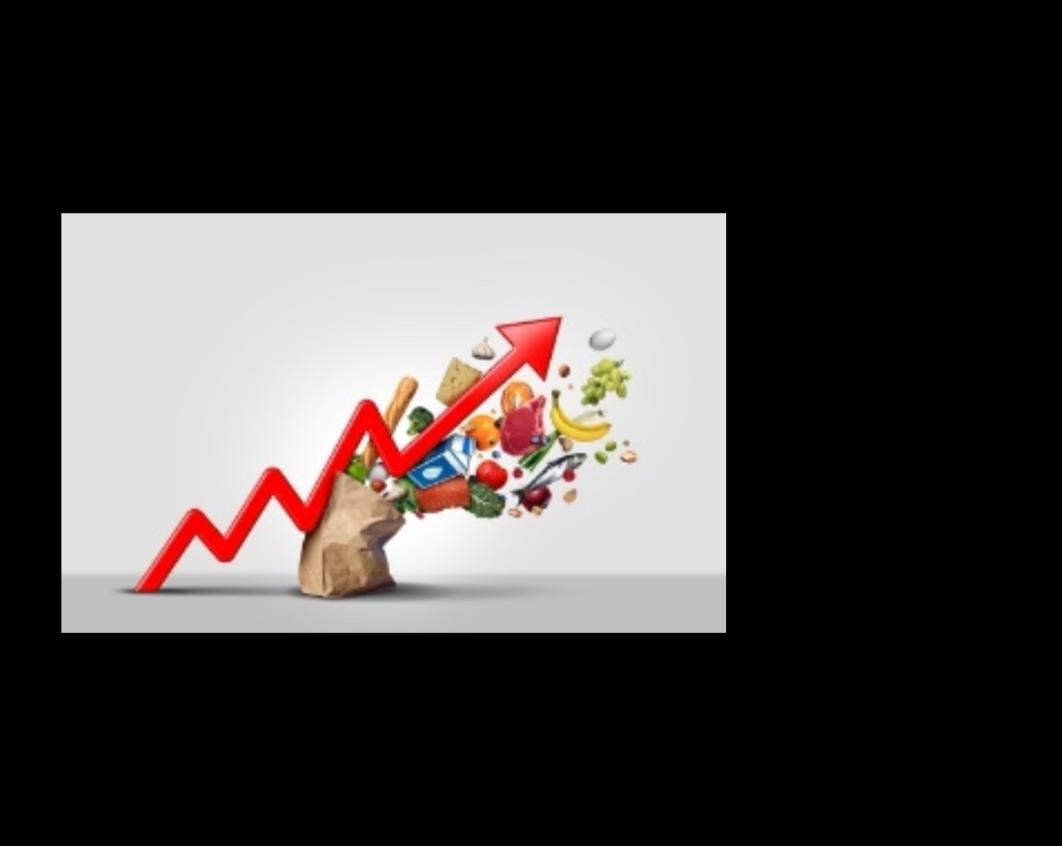
Leading up to the Crash of 1929 (Part 1 - The War Comes to An End, A Depression Follows, 1920-1921)
www.theouttop.com P2 Sources: Nations, S A History of the Unit Murphy, R. P. "The Depression https://fee org/articles/the depre y ( ) Social Security in America https://www ssa gov history/reports/ces//cesbookc3 html (accessed 9/25/22) 67% %
t
g
.2% to 8 7%*
I fl ti t b ll d i j t
Religion
The Book of Judges - Chapter 3
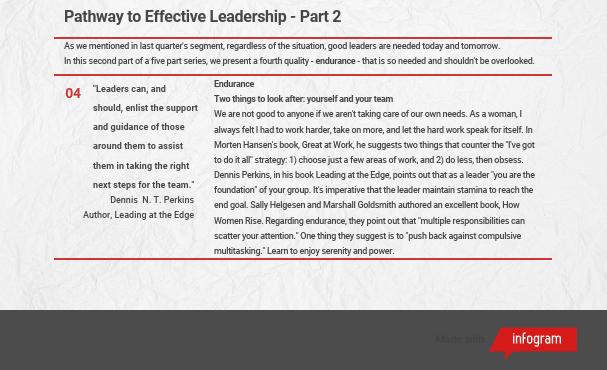
They had just spent decades crossing miles and miles of the terrain from Egypt to the Promised Land of Canaan. The people had been fed and their thirst addressed along the way Their enemies were subdued by the mighty hand of God They were led by a good leader, Moses, a flawed man for sure but one whom God entrusted to not only free His people but to get them to their destination. Joshua, a man faithful to God, followed in Moses steps, actually leading God’s people into the Promised Land The journey had gone from slavery to freedom and as God said in Exodus 3:8 “to a good and large land, to a land flowing with milk and honey ”
By the time we reached the end of chapter 1 in the book of Judges, we knew trouble was brewing for God’s people. The Israelites were not following the directives put forth by the Lord Warren Wiersbe, in his commentary on Judges, reminds us of what the apostle Paul says of the warfare that existed then as it
The Nations Remaining:
The “five lords of the Philistines, ” which include Ashdod, Gaza, Ashkelon, Gath, and Ekron (see 1 Samuel 6:17)
The Canaanites (their parcel of land ran alongside that of the Sidonians, as far south as Gaza)
The Sidonians (first mentioned in Genesis 10:19)
The Hivites
does today: “For the weapons of our warfare are not of the flesh but have divine power to destroy strongholds.” The Matthew Henry commentary explains to Christians what Paul is telling Corinthians: that “the powers of sin and Satan [are] in human hearts Ignorance, prejudice, and sinful desires are his strongholds in soul ” Good versus evil
Destruction From Within
In Deuteronomy 7:2, Moses tells the Israelites that “when the LORD your God delivers them over to you, you shall conquer them and utterly destroy them You shall make no covenant with them nor show mercy to them ” In chapter 3 of Judges, we learn that some of the inhabitants of Canaan still remained (see box to the left). Why did the Lord allow this to happen? We are told in verse 1 that “now these are the nations which the LORD left, that He might test Israel by them ” God is going to test His people to see the level of commitment they have toward Him What would this testing be comprised of? For many of us today testing is a multiple choice test or one that has questions to answer. But there was a different kind of testing that God was going to oversee Testing would come in two ways First, because “the generations of the children of Israel” were new to warfare, would they be able to not only defend themselves but to trust God as their Commander? They were in the Promised Land but in the midst of this land were their enemies Would they be alert and ready to take action, if necessary? (cont on page 5)
The book before Obadiah: Amos
The book after Obadiah: Jonah
The Minor Prophets SeriesObadiah and His Burden With the Edomites
"The pride of your heart has deceived you."
The shortest book in the Old Testament is Obadiah with a total of 21 verses It provides a quick lesson on what happens when a nation's people become prideful when a country who rejoices in its renunciation of God and believes it is superior and infallible because of its physical attributes
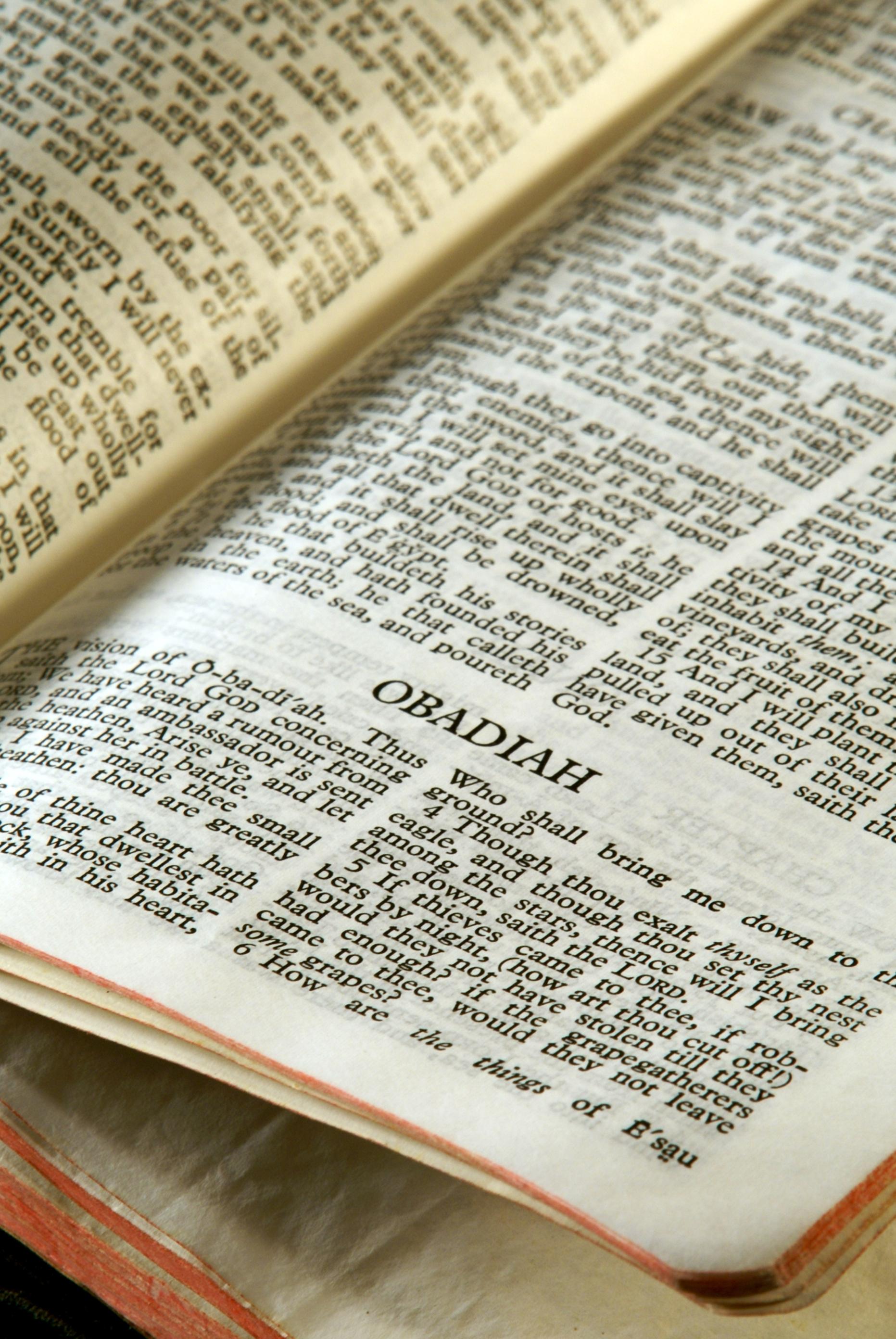
It is not totally conclusive as to the exact year of Obadiah's prophecy
Babylon
Babylon, located along the Euphrates River, was the site of the Tower of Babel (see Genesis 11) This tower was built in defiance of God It was the "first attempt to establish a world order devoid of God's influence "1 Babylon was at one time a powerful city, first mentioned in 2 Kings 17:24 In the NKJV of the Bible, you will find Babylon mentioned 287 times (making it the second most mentioned city in the Bible) Babylon (by name) was first mentioned in 2 Kings 17:24 It is last mentioned in chapter 18 of the book of Revelation
1Jeremiah, Dr David The Book of Signs (Nashville, TN: Thomas Nelson, 2019), 46
The history of Edom
Many consider it to be 586 B C due to the Babylonians taking Jerusalem captive Others think the prophecy centers around the year 840 B.C. However, it would seem to be the former as Obadiah in verse 5 closely uses a quote from Jeremiah 49:9: "If grape gatherers came to you, would they not leave some gleaning grapes? If thieves by night, would they not destroy until they have enough?" Jeremiah's ministry is believed to be from 627 586 BC (continued on page 4)
The population of Edom was believed to be the ancestors of Esau, Jacob's twin brother As a result, the nations of Israel and Edom were closely allied However, such did not prevent skirmishes and animosity between the two nations, primarily on the part of the Edomites.
www.theouttop.com P3
I N F O B L O C K 1 I N F O B L O C K 2
Very little is known about Obadiah personally. We do know he was a prophet for God The focus of Obadiah's prophecy was the country of Edom and its inhabitants (see history of Edom in the Info Block 2) The country itself was situated east of Amalek and south of Moab It was surrounded by mountains which gave the Edomites a false sense of security
The Edomites had undoubtedly inherited the animosity toward the Israelites Any harm coming to God's people was relished by the ancestors of Esau. So the destruction of Jerusalem by Babylonian soldiers was cheered on by the Edomites So much so that they actually participated themselves in such destruction
Did such go unnoticed by the Lord God? No All must know and remember that the Lord God is omniscient all knowing Daniel 2:22 tells us that "He reveals deep and secret things; He knows what is in the darkness, and light dwells with Him." The acts of the Edomites would not go unpunished
Beginning in verse 1, the Lord God uses Obadiah to declare a war against Edom "Arise, and let us rise up against Edom for battle." Obadiah echoes what David said in Psalm 9:7: "But the LORD shall endure forever; He has prepared His throne for judgment " Obadiah knew what David knew: God alone rules over all principalities and powers He will judge the world in fairness The Edomites and others who oppress people will be dealt with Everyone wants respect The country of Edom had the same desire Remember, the Edomites are prideful people. The Lord knew this. He declares through Obadiah that "behold, I will make you small among the nations; you shall be greatly despised " In their hearts they were thinking "Who will bring me down to the ground?" They thought they were invincible They're told otherwise,
"Though you ascend as high as the eagle, and though you set your nest among the stars, from there I will bring you down," says the LORD
There have been many sins committed by the Edomites over time, but none so grievous as the wrong they committed against the people of God the Israelites God states in Isaiah 1:4 "Alas, sinful nation, a people laden with iniquity, a brood of evildoers, children who are corrupters! They have forsaken the LORD, they have provoked to anger the Holy One of Israel, they have turned away backward " We feel God's anger in verses 12 and 13 as the sinful acts of the Edomites is listed In the end, Edom reaped what it sowed The nation and its people would be annihilated
In the remaining verses, Obadiah's message would turn from doom to declaring the restoration of God's kingdom The captives of Jerusalem God's people would be brought back to possess their own land "On Mount Zion there shall be deliverance and there shall be holiness " The saviors mentioned will be the preachers of the Gospel who will be responsible for saving themselves as well those who hear the message Verse 21 says "the kingdom shall be the LORD's " The Lord Christ's kingdom
Book Review: JFK and the Reagan Revolution
If you ever wanted to see how economics plays a role in our lives, then you must read
Lawrence (Larry) Kudlow's and Brian Domitrovic's book, JFK and the Reagan Revolution While the book takes the reader back several decades, it shows the importance of having a greater understanding of economics (if for nothing else, to not be bamboozled by Washington D C)
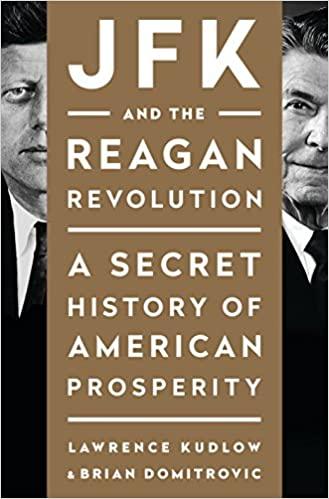
The authors make a case for less government involvement supported by the actions (or lack thereof) taken in the 1950s, a decade of economic struggles for Americans, through the 1960s of which the latter years of the decade showed what happens when government reacts for the people, the utter economic turmoils of the 1970s, followed with the "Reagan Revolution" of the 1980s It is an insightful book, giving conservative readers second thoughts about whether all Democrats are liberal and the need to once again be proud of the back bone of President Ronald Reagan who hadn't forgotten the American people
The Authors
Larry Kudlow
Kudlow is a well renowned economist having most recently served as Assistant to the President for Economic Policy and Director of the National Economic Council under President Trump (continued on page 6)
The Fed Takes the Reins (continued from page 1)
National Banking Comes to Fruition
"I am in favor of a national bank " Abraham Lincoln, 1832
The Civil War was becoming a financial drain for the United States The country was in need of credit. In 1863, the National Currency Act was passed and signed into law by President Lincoln What did this Act do? It established the Office of the Comptroller of the Currency (OCC), which oversaw the creation of a national currency (the U.S. dollar) as well as the chartering of national banks.
The following year, the National Banking Act of 1864 put forth requirements for a "national banking association " Such requirements included minimum capital levels and reserve requirements based on the population and designation of the city where a bank was located. National banks could also issue up to $500,000 in notes backed by U S Treasury bonds In less than thirty years following the collapse of the SBUS, national banking had been resurrected
Something to consider: implementing the legislation that brought forth national banking did not diminish financial crises Such panics
occurred in 1873, 1884, 1890, 1893, and 1907.
The Results of the Financial Panic of 1907
Six years after the Panic of 1907, the Federal Reserve Act of 1913 was passed by Congress. This legislation established the Federal Reserve Board made up of twelve regional Federal Reserve Banks
The Federal Reserve was established by Congress to meet three goals:
1) Maximum employment
"That legacy [Hamilton's] can be described in a nutshell, as inflation, debasement of the currency and perpetual economic instability through politically contrived boom and bust cycles in the economy."
Thomas DiLorenzo
Author, Hamilton's Curse
2) Stable prices
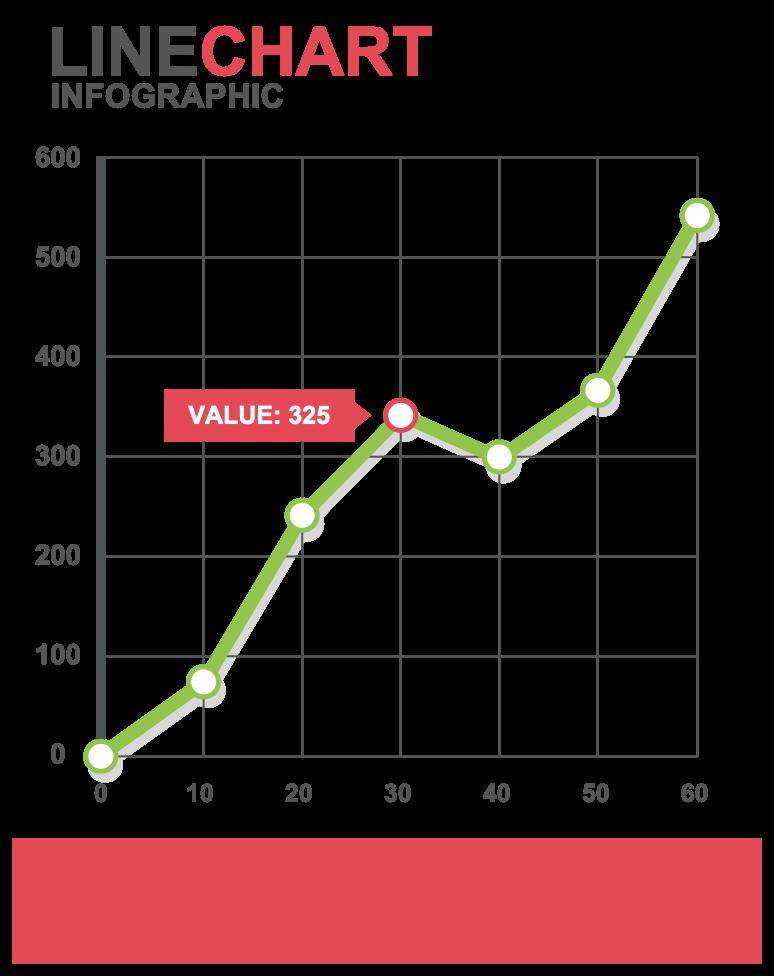
3) Moderate long term interest rates Keep these three in mind as you review the chart on page 2 that discusses the actions which lead up to the 1920 1921 depression
Sources:
DiLorenzo, T Hamilton's Curse (2008) Random House, Inc New York, NY Grossman, R S "US Banking History, Civil War to World War II." https://eh.net/encyclopedia/us banking history civil war to world war ii/
Authors: Lawrence Kudlow and Brian Domitrovic
Obadiah (continued from page 3)
www.theouttop.com P4
The Book of Judges
Chapter 3 (continued
Second, the loyalty and love for God by His people would be tested would they show it through obedience to the commandments Moses received from the Lord and subsequently gave to their fathers or would they disrespect the Lord As you may recall, in the second chapter of Judges, the angel of the LORD preached to the Israelites, expressing disappointment that they were not faithful to the requirements put forth under God’s covenant In Deuteronomy 7:3, Moses warned the Israelites that they shall not “make marriages with them. You shall not give your daughter to their son, nor take their daughter for your son ” But we know in reading Judges 3:5 that God’s people chose to disobey Him, not only dwelling with their enemies but worshiping their gods as well The Israelites had the opportunity to bring the Canaanite nations to faith the one and only God Can you imagine what a difference that would have made?! But they squandered the chance and instead of standing firm in obedience they disobeyed bringing paganism into their own lives!
It should be remembered that God has given man, from the beginning, free will to choose Author Joseph Farah puts it this way in his book, The Gospel in Every Book of the Old Testament, “So God left them to their own devices He left them to be oppressed by their enemies ” James 1:12 14 says this about being tempted:
Blessed is the man who endures temptation; for when he has been approved, he will receive the crown of life which the Lord has promised to those who love Him Let no one say when he is tempted, “I am tempted by God”; for God cannot be tempted by evil, nor does He Himself tempt anyone But each one is tempted when he is drawn away by his own desires and enticed.
When David fought Goliath, he wasn’t intimidated by the size difference between him and this giant His belief in God held firm Max Lucado says this of David in his book, Facing Your Giants: “David majors in God He sees the giant, mind you; he just sees God more so ” But such was not the case with the Israelites a couple of hundred years before David came on the scene. They compromised where they should have held firm. Thus came God’s punishment, then a reprieve….. God Sends a Judge
The Israelites, chosen as God’s people and freed from slavery in Egypt, decided to serve “the Baals and Asherahs ” Why would they do this? Wiersbe puts it this way, “Alas, instead of trusting God to change their neighbors, the gods of their neighbors changed the Jews, and everything Moses warned them not to do, they did ” With their actions came the wrath of God. For eight years, they were slaves to the wicked king of Mesopotamia, Cushan Rishathaim. Judges 3:9 tells us that “the children of Israel cried out to the LORD ” God heard them and sent a deliver, Othniel, who “delivered them ”
Othniel made himself available to the LORD Just as Christians should today When not sure what to do, David Kinnaman and Gabe Lyons state in their book, Good Faith, "it is hard to agree on what's best, but taking ourselves out of the conversation to avoid conflict doesn't help anyone " Othniel did not remove himself from the conflict. Verse 10
tells us that "the Spirit of the LORD came upon him " What is the Spirit of the Lord? For Othniel, the Spirit of the Lord was that "of wisdom and courage that equipped him for service and a spirit of power that inspired him to do it" (via Matthew Henry Commentary, p 278) To be furnished with the Spirit of the LORD was a precondition to be recognized as a legitimate leader of Israel Numbers 11:17 speaks of the Spirit the LORD tells Moses "And I will come down and talk with you there And I will take some of the Spirit that is on you and put it on them, and they shall bear the burden of the people with you, so that you may not bear it yourself alone " We are told in 1 Samuel 16:13, at the time David is being chosen as the successor to Saul, "Then Samuel took the horn of oil and anointed him the midest of his brothers. And the Spirit of the LORD rushed upon David from day forward " Isaiah spoke of the Spirit of the Lord being upon him in Isaiah 61:1: "The Spirit of the Lord GOD is upon me, because the LORD has anointed me to bring good news to the poor; he has sent me to bind up the brokenhearted, to proclaim liberty to the captives, and the opening of the prison to those who are bound "
Othniel would be the judge of Israel for the next forty years Following the defeat of the king of Mesopotamia, Othniel did a tremendous job managing the nation, bringing it rest Then he died and the Israelites began the cycle again of doing "evil in the sight (continued on page 7)
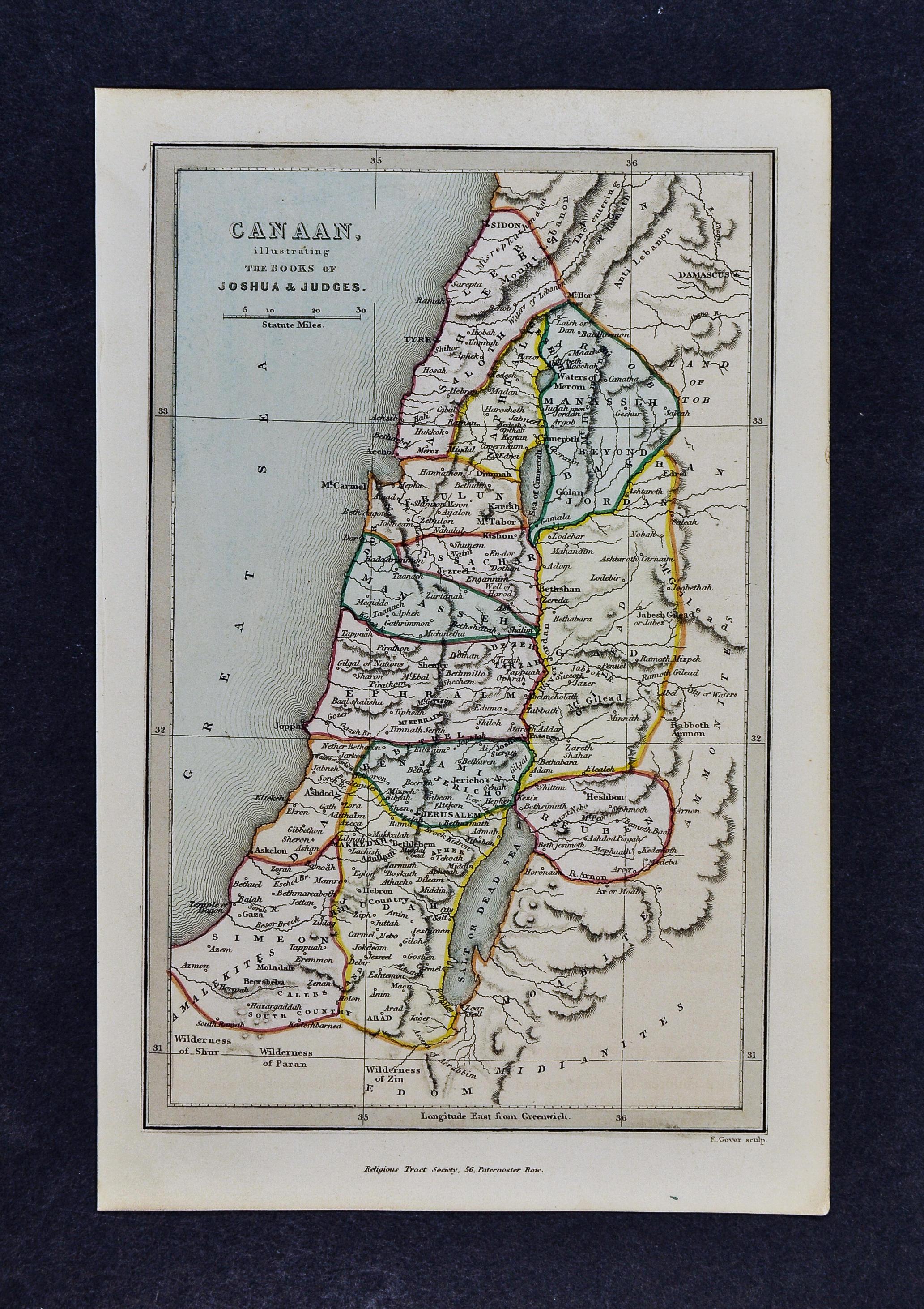 Map of Canaan during the time of the books of Joshua and Judges
Map of Canaan during the time of the books of Joshua and Judges
www.theouttop.com P5
-
from page 3)
America's President Page: John F. Kennedy
Politics Was Part of the Kennedy Family
His Grandfather: Patrick Joseph Kennedy; was successful in Boston's liquor trade business; beginning in 1884, served five consecutive one-year terms in the Massachusetts Lower House; then served three two year terms as state senator
Achievements Before Becoming President
1Elected as president in 1960, John F Kennedy narrowly defeated Richard M Nixon by 119,450 votes
Gran
His Grandfather: John F Fitzgerald (nicknamed "Honey Fitz") was onetime mayor of Boston; was elected to the state senate in 1892; served three terms in Congress; was very influential on JFK's life
His father: Joseph Patrick Kennedy; a multimillionaire; served as head of the Securities and Exchange Commission (SEC); became U S Ambassador to Great Britain
His mother: Rose Fitzgerald; was the eldest among her two sisters and three brothers; she loved her father; assisted her father when he was mayor of Boston
Profiles in Courage
When did John F Kennedy serve in the U.S. House?
1947-1953
J o h n F. K e n n e d y 3
Upon entering the White House, the United States was suffering under the weight of its fourth postwar recession
Concerned about foreign policy, Kennedy invoked the need for the expansion of freedom throughout the world
Put forth legislation (known as The Revenue Act of 1964, passed by Congress following Kennedy's death) that provided tax reduction over three years for both individuals and corporations, totally $13.6 billion (see book review on page 4) Provided for a massive economic recovery
2The Civil Rights Act of 1964 was introduced by JFK during a radio and television speech on June 11, 1963
Diffused the tensions in the Cold War following the missile crisis
His brother: Edward M Kennedy; served as U S senator for Massachusetts from 1962 2009
His brother: Robert F Kennedy; served as Attorney General in his brother's administration
1953-1960
Brian Domitrovic
Domitrovic has a PhD and is the Richad S Strong Scholar at the Laffer Center in Nashville He has authored as well as edited six books on various economic topics and is currently a Senior Associate at the Laffer Center for Supply Side Economics
Making the Case
Out of the gate, in the Introduction, Kudlow and Domitrovic make the case for a strong U.S. economy, whether it be fifty years ago, today, or in the future I don't blame them for beginning with a lecture/discussion on economics and the state of the economy in the new millenia The authors make valid points like reminding us that there are "two key truths" regarding a strong economy:
1 The private sector is the "engine of economic growth "
2. There is one thing the government must do and that is to ensure economic growth. In order to do that, it must "get out of the way." There is no greater example of government intervention than the amount
T4of legislation put forth at the federal level As Kudlow and Domitrovic point out, the private sector has been saddled with:
The Sarbanes Oxley Act of 2002
The Dodd Frank Act of 2010
The EPA regulations
The DoL (Dept of Labor) compliance agencies
The Federal Reserve
www.theouttop.com P6 Many believe that in his nearly three years as president, JFK showed that "America was still the last best hope of mankind "1 1Dallek, Robert An Unfinished Life (2013) Back Bay Books, New York, NY
"The economy has responded to all of this in clear fashion: by not growing " How can the economy grow when "government spending at all levels has zoomed up by 45 percent since the turn of the millenium Effective tax rates are higher that they were in 2000 " A thriving private sector would be the result of substantially lower tax rates and a strong stable dollar Keeping this in mind, we jump back to the decade before Kennedy becomes president (continued on page 8)
Often referred to as JFK, John F Kennedy was the 35th President of the United States; his most famous quote is from his inaugural speech:
JFK Becomes President of the United States
The Legacy of JFK
What book won the Pulitzer Prize for then U S Senator John F Kennedy in 1956?
When did John F Kennedy serve in the U S Senate?
he civil rights movement had gained new momentum
"Ask not what your country can do for you, but what you can do for your country." Book Review: JFK and the Reagan Revolution (continued from page 4)
of the LORD " (Judges 3:12)
Enter Ehud
The Israelites got on the cycle again They lost their leader, Othniel the one that kept them focused on the Lord Almost immediately after Othniel's death they started committing sins against the Lord! The impact of this Othniel was short lived A lasting difference was not to be had
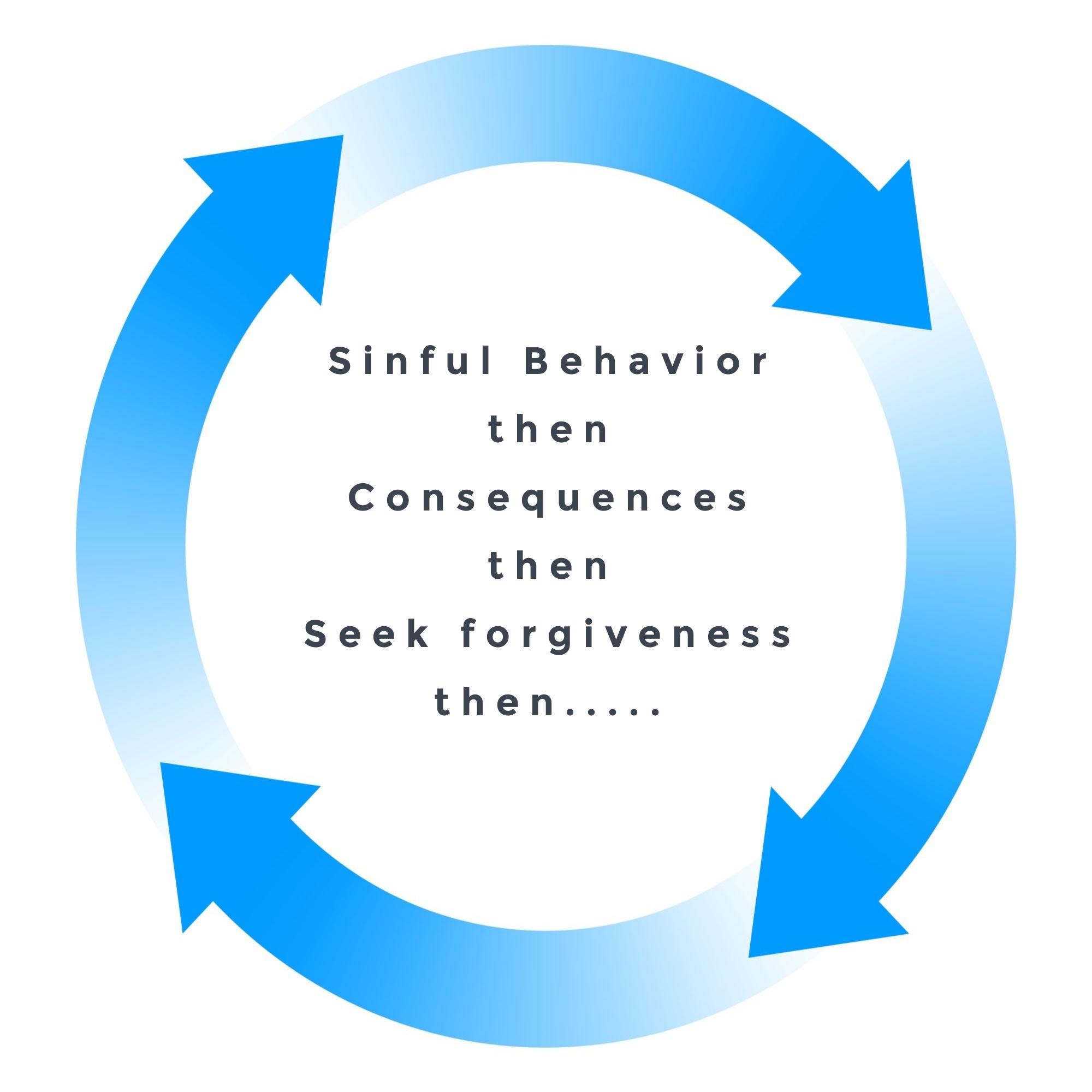
Wiersbe, in discussing the behavior of the Israelites returning to their disobedient ways, brings up the word gratitude The Oxford dictionary defines gratitude as "the quality of being thankful; readiness to show appreciation for and to return kindness." There wasn't the presence of gratitude among God's people. The one who deserved gratitude then as well as today is the Lord God All that He did for the Israelites who would then turn around and disrespect Him reflected a selfish, self centered group of people
Again, there are consequences for our actions. Such consequences for the Israelites resulted in God strengthening "Eglon king of Moab against Israel." He was brutal. Once Eglon took control of Israel, he oppressed the people turning their lives into misery once more Such misery for the Israelites went on for eighteen years They "cried out to the Lord" praying that He would help them
And they sang responsively, praising and giving thanks to the LORD, "For He is good,
For His mercy endures forever toward Israel "
Ezra 3:11
And help came again from the Lord. This time from another judge, Ehud Where did Ehud come from? We are told he was from the tribe of Benjamin Judges 3:15 also tells us that Ehud was left handed, which played a role in the killing of Eglon He would escape capture after killing Eglon, getting to Seirah (an area that could possibly mean "a particular, well known forest in the hill country of Ephraim)1 Upon blowing "the trumpet in the mountains of Ephraim," the children of Israel gathered with Ehud to do battle
The following is yet another wonderful example of how we are to follow God's commands:
"Then he [Ehud] said to them, "Follow me, for the LORD has delivered your enemies the Moabites into your hand " There was encouragement in the voice of Ehud His faith in the Lord, as those that had come before him, i e Noah, Jacob, Joseph, Moses, Joshua, enabled him and those he led to defeat the enemy.
The twelve tribes of Israel: Reuben Simeon Judah Issachar Dan Naphtali Gad Asher Zebulun Mannasseh Ephraim Benjamin
So Moab was subdued that day under the hand of Israel. And the land had rest for eighty years Notice the wording "eighty years " The Israelites would start sinning again, prompting God to send another judge, Shamgar, who would defeat the Philistines and deliver Israel once again The saga, of the Israelites own choosing, would continue
1 "Encyclopedia of the Bible Seirah " BibleGateway https:// www biblegateway com/resources/encyclopedia of the bible/Seirah Date accessed: 20 August 2022
Answers to crossword puzzle in second quarter newspaper:

Across:
6 Progressive Party
7 Brief
8 The Square Deal
Down:
1 Trust companies
2 William Howard Taft
3 Teddy Roosevelt
4 Noble Peace Prize
5 Rough Riders
The Bygone Days - the landline phone trivia
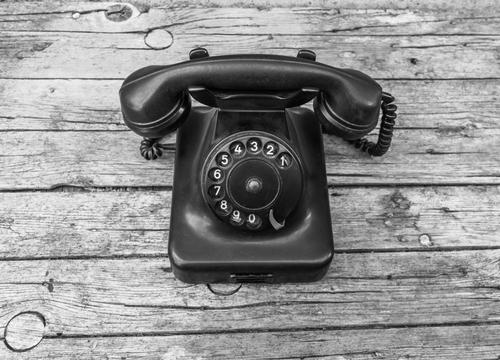
Alexander Graham Bell invented the telephone in the 1880s
Besides Bell, there were five other inventors of the telephone
There were 47,900 telephones in 1880
Source: "History of the Telephone " https:// bebusinessed com/history/history-of the-telephone/
Get to know the book of Genesis Get to know God who shows from the beginning of time not just the love He has for you and me, but also the grace and mercy He extends to each of us. Get to know the men in the book of Genesis, whose faith and belief in God overcame the obstacles they faced Order this book now at https://authorreputationpress com/products/the men of genesis
 Advertisement
Advertisement
www.theouttop.com P7 The Book of Judges Chapter 3 (continued from page 5)
WORD SCRAMBLE
Something Had to Be Done
The Economic Interruption and Demise of the 70s

February 14, 1963
Someone recently said to me that she wished she lived in the 1950s Puzzled, I told her to read chapter 1 of Kudlow's and Domitrovic's book and then tell me if her views changed

Recession of 1949 it spanned from November 1948 to October 1949
Recession of 1953 went from July 1953 to May 1954
Recession of 1958 began in August 1957, ending in April 1958




Recession of 1960 61 it spanned from April 1960 to February 1961


The 1950s had its issues economically. For many of us, this might be news For the Millennials and Gen Zs, it may seem irrelevant, but history has a way of repeating itself if not learned There was prosperity, but it kept getting interrrupted. Kudlow and Domitrovic point out that "from 1949 through 1960, the American economy fell into recession four times " Four times (see chart on right) "When Kennedy entered office, Americans had spent 30 percent of the previous eight years in recession " 30 percent. That's 29 months of recession living. You can feel through the words of the authors the demoralization that must have crept into those living through such times
The tax code, with its 24 brackets, needed to be revised downward. But the Republicans held on to a quid pro quo stance of tax cuts for a decrease in federal spending, which never materialized Ah, the joy of spending someone else's



money!
John F. Kennedy Becomes President
Kudlow and Domitrovic point out that Kennedy "showed little interest in the tax cut debate " However, such a stance would change Truly ensconced in the belief that the U S economy could grow 5 percent annually, Kennedy, in 1963, put forth legislation to implement to tax cuts. He wouldn't see its passage The politicians held up its passage as a bargaining chip with the civil rights legislation that many were against It would take Kennedy's death to get passage of the legislation.
The Aftermath
The unfortunate death of Kennedy played a factor in the passage of both his tax cut bill and the Civil Rights Act of 1964 What would follow was economic growth But was not long lasting A tax increase came in 1968. Inflation "hit 6 percent in 1969."
As Joe Hill puts it, "you think you know someone But mostly you just know what you want to know." Americans in general tend to give the newbie on the block a fair chance. But what we now know is that the Nixon administration's economic policies were devastating to Americans The authors effectively lay out the detrimental actions that Nixon and his crew took placing hardships on the backs of hardworking Americans Then came Jimmy Carter
The Reagan Revolution

Reagan overcame and got the economic ball rolling again with tax cuts and sound monetary policy helping the country recover from the stagflation malaise of the 1970s. Happy days were here again then came George H W Bush's decision to renege on the "no new taxes" pledge
The book is not a stale textbook on economics. It's better than that it's a view of the inner workings of JFK, the leader of the free world, and his staff, from 1961 to 1963, whose economic policies would influence the 40th president of the United States, Ronald Reagan
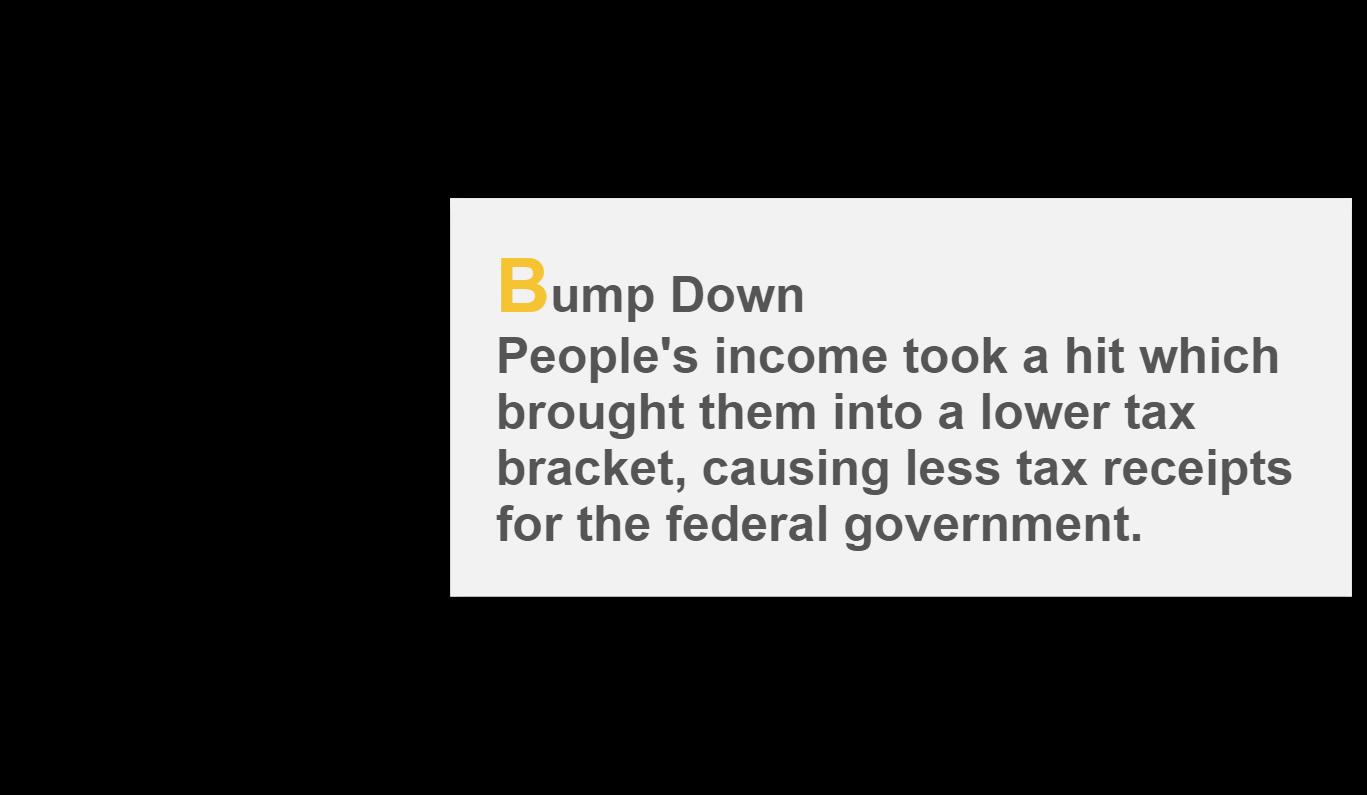
Rating:
"What I am most concerned about is the prospect of another recession."
President John F Kennedy
"There were 24 levels, or brackets, in the income tax code " (Kudlow & Domitrovic p
JFK and the Reagan Revolution
A recession came in 1969, lasting until 1971
JFK and the Reagan Revolution Book Review (cont. from page 6) www.theouttop.com P8 E p a n s i o n F i z z l e s F e d e r a l I n c o m e G o e s U p B r a c k e t C r e e p E x p a n s i o n of the E c o n o m y S p u t t e r s D o w n t u r n T H E E C O N O M Y O F T H E 1 9 5 0 s
20
T a k e s a
R E C E S S I O N S





















 Map of Canaan during the time of the books of Joshua and Judges
Map of Canaan during the time of the books of Joshua and Judges



 Advertisement
Advertisement












